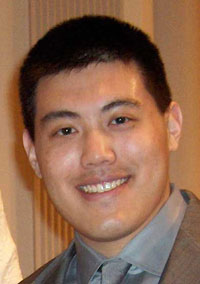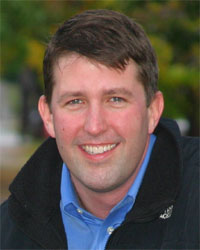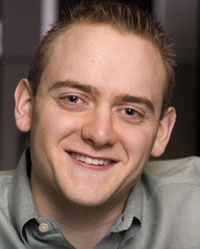6 Questions with Arié Moyal of Hug Train USA
 Back in late December, 2012 and early January, 2013, a small but might event occurred across the US – Hug Train USA. As the name implies, there was a journey across the country by train, stopping in major cities and offering hugs and raising money, all in the name of mental health.
Back in late December, 2012 and early January, 2013, a small but might event occurred across the US – Hug Train USA. As the name implies, there was a journey across the country by train, stopping in major cities and offering hugs and raising money, all in the name of mental health.
Rather then telling the story myself, I asked Arié Moyal to tell it himself. The format is in the order of the 6 Questions I have asked in the past, but as a video. It was recorded on January 3, 2013 on his second stop in Chicago. If you can’t see the video below you can view it on YouTube.
If you would like to get involved with Hug Train USA you can learn more at their Web site or you can follow them on Twitter or Facebook.
This is from The Hot Iron, a journal on business and technology by Mike Maddaloni.
Did you enjoy this? Subscribe to The Hot Iron by RSS/XML feed or Read by Email.
6 Questions • Announcements • Social Media • Thrive • (0) Comments • Permalink
6 Questions with Justin Chen
 1 - Who are you, and what are you doing here?
1 - Who are you, and what are you doing here?
My name is Justin Chen and I'm an entrepreneur and co-founder of Menuism and The Wedding Lens. I got my computer science degree at UC Berkeley and then did the big company thing at HP for a few years before deciding that it was time to forge my own path and co-founded Two-Bit Operation LLC back in Feb 2006. Menuism was our first project and since we've been able to build that into a profitable business, we decided to add to our portfolio with The Wedding Lens. Menuism is the place to go for dish reviews of restaurants and all the restaurant menus (we aggregate menu links from AllMenus, MenuPages, GrubHub and the restaurant's own website). The Wedding Lens helps couples get all the full resolution digital photos from their wedding guests in a single album so they can download them from one place. Our goal is to solve simple problems while running a business that affords us the lifestyle flexibility that we've come to enjoy with self-funded entrepreneurship. I recently moved to Los Angeles, but my life as an entrepreneur started in Chicago, where I met a lot of great people and got help from the close-knit startup community there.
 2 - You talk about a balance between work and life; do you find other entrepreneurs who share that goal, or focus more on their ventures?
2 - You talk about a balance between work and life; do you find other entrepreneurs who share that goal, or focus more on their ventures?
Yeah, there are plenty of them, you just don't read about them as much in the press. The publicity usually goes to those that aim really big and make a lot of noise. Books like the "4-hour work week" have taught us all how to be more productive with our time and how to enjoy life as we work. I've done the shoot big 80-hour startup thing in the past and all I got out of it was burn-out, some worthless options and few t-shirts. I'm enjoying this route much more. Maybe I'm just getting old :)
3 - We're all getting old, but I digress. Can you describe how you interact and work with your team?
Now that there's 3 of us in 3 different cities (Chicago, Los Angeles, Seattle) we do most of our interaction over Skype, unlimited mobile-to-mobile minutes, and IM. We use Google docs & spreadsheets for all of our project planning, coordination and tracking and Assembla for our bug tracking.
The week starts with a team phone meeting where we discuss the status of our projects, any issues that may have arisen, and the plans going forward. From that point on, everyone works on their assigned areas and we do daily morning SCRUM emails to stay in sync with each other. Of course there's occasional IM chats and phone calls throughout the day for real-time updates or to bounce ideas of each other. Any contract workers or interns that we have also work virtually and are typically managed by a weekly call with one of us (just depends on who owns the area they're working on). It's very much a divide & conquer approach to moving things forward, but we'll still try to get together in the same place when we know that we're going to be doing heavy planning or development to make things more efficient (usually every couple months).
4 - Though you are in regular communication, you are still working alone. How do you stay motivated?
Day-to-day motivation and productivity definitely becomes difficult with isolation. We try to combat it by breaking all our initiatives down into bite-size tasks that we can individually tackle relatively quickly. When you have smaller tasks it feels like you're making progress by continually checking things off the to-do list. The daily scrum reports and weekly meetings provide the primary framework for accountability, but the burden still falls on the individual to stay productive and also keep the others on task as well (this is where nagging IMs and emails come in handy). We keep the team humming to the same tune through frequent re-centering meetings and a project dashboard (in google docs) that keeps our eyes on the goals and statuses of all our current efforts.
5 - Despite this, you have created some great sites, such as The Wedding Lens. Can you describe the creative effort that led to it?
So far, our projects have come out of quickly building solutions for our own needs and then rapidly evolving them, with Menuism solving our desire to know the best dishes to order at a restaurant. In the case of The Wedding Lens, the need stemmed from my wedding last July when we tried to find a way to consolidate all the high resolution photos in one place for everyone to download. Since we didn't want to be bombarded with tons of links to Picasa and Snapfish to view disparate albums, my business partner John whipped up a prototype the day after the wedding and asked our friends to upload their photos to it. Great feedback from our friends spurred us to give some serious thought about the business opportunity. We did some market research, identified our niche, solidified the product vision and within the next month we had version 1 ready for other couples to try out. After a few months of pilot testing by friends of friends and a redesign, we have TheWeddingLens.com as it stands today. We're pretty happy with the response from our customers and we're seeing an average of 600 photos per album, with some albums receiving over 1000 photos from their wedding guests.
6 - What is one question I did not ask, and what is its answer?
What advice would you give an entrepreneur that's just getting started?
1) Get out and talk to people: There are plenty of ways (local meet-ups, networking events, friends of friends, emailing bloggers, etc.) to meet people around you for coffee or drinks and you never know who you'll end up meeting. You'll also be surprised how receptive most people are to meeting with you if you just reach out to them and tell your story. When you're small, the free advice and potential partnerships you garner through these relationship building efforts are invaluable. Plus, once you've told everyone what you're planning to do, you have some public accountability to keep yourself on track.
2) Target a niche that you feel you can own: Not every company has to try to take over the world or even their industry. Scale your ambitions to your capabilities and how big you want to grow your business. By aiming to solve a particular need in an industry, you'll set yourself up nicely to partner with other players in the space.
3) Be efficient with your marketing dollars: Focus on efforts you can measure so you can improve your conversion rates, whether it's page views, signups, or sales. If it's a web venture, definitely spend some time learning about search engine optimization and social media marketing. The key is to find ways for your venture to keep marketing itself without continued direct effort from yourself.
Did you enjoy reading this? You are welcome to subscribe to The Hot Iron by RSS feed or by email.
6 Questions with John Wall
 1 - Who are you, and what are you doing here?
1 - Who are you, and what are you doing here?
My name is John Wall and I enjoy Technology, Learning and Marketing. During the day I work at AccuRev, the company with the best version control tool available at any price. In my spare time I've been experimenting with social media like blogs and podcasts.
You can find out all about me at RoninMarketeer.com.
2 - You have been podcasting since 2005. What good and bad have you seen evolve in the podcasting world over time?
The good is really simple - for anyone that considers radio dead, boring, or repetitive there's now a huge world of audio content out there beyond audiobooks. The bad is that tons of it is garbage that the average person can't bear to listen to. It's been fun to watch as the landscape and business models of media have been completely destroyed and are now being rebuilt.
 3 - How would you say the rebuilding of media business models is going?
3 - How would you say the rebuilding of media business models is going?
If you are Apple, TiVo, Amazon or NPR, things are great. ClearChannel, Satellite Radio, or a store selling CDs, not so much.
I'm surprised that "Big Media" is coming around faster than I thought they would, but also surprised not to see any superstars or millionaires yet.
4 - Will there be a decline of superstars, and an increase of people being stars within niches?
Yes, absolutely. Media is fragmenting at an accelerating rate. Mass media is slowly falling apart. These are just figures off the top of my head, but the MASH finale was the most watched show on TV at something like 106 million, the biggest thing going now is the Super Bowl down around 97. Between TV, Web, Movies, Magazines, Podcasts, Newspaper, Radio and DVDs, consuming media has gone from a modest selection to more than one individual can comprehend.
5 - You host 2 podcasts, The M Show and Marketing Over Coffee. How do you stay on the edge with them and how do you see them evolving?
Marketing Over Coffee is content based on what I do for a living so I am gathering content for that program during every waking hour. The program has been growing at a stable rate for over a year, has sponsorship, and is a great platform for Christopher Penn and I to get our message out. It will continue to grow and expand.
The M Show is at the other end of the spectrum. It was built with old media in mind (I patterned it after Don Imus' radio program) and unfortunately even though tools that allow you to compete with big media are now available for all at next to nothing, the downside is that you have to compete against the entire world. Although the M Show is fun to do, it's proved not to be a viable business. Ultimately I'll leave the feed open for fun stuff, but Marketing Over Coffee will end up using all the resources that go to it (e.g. my time).
6 - What is one question I did not ask, and what is its answer?
Does any of this social media stuff provide business value? Can you make money doing it? The answer is yes and no. On it's own, social media is useless, it exists only to magnify and amplify what you already have to show or say. Think of it as the internet in 1996, if you have a well-crafted message, this is another venue to get it out to the world. If you've got nothing to say, you can say it louder, but that still doesn't mean that anyone is going to care.
Did you enjoy reading this? You are welcome to subscribe to The Hot Iron by RSS feed or by email.
6 Questions with Tim Courtney
 1 - Who are you, and what are you doing here?
1 - Who are you, and what are you doing here?
I'm Tim Courtney, a Chicago-area (Wheaton) native who "grew up" on the Internet. I get excited when I see technology enabling people to connect in the real world on deeper, more diverse, and more meaningful levels.
Thus, I'm very interested in social technology and online communities that are changing the way we self-identify, select our associations, and interact in a face-to-face world. These trends are instituting large cultural shifts and we're just beginning to see the potential and the results.
To answer what I am doing; a few things. Most immediately, I'm co-organizing SocialDevCampChicago with Andy Angelos coming up on August 9th. It's a BarCamp-style unconference for people passionate about social networks, web applications, platform development, new media, identity management, and other related topics.
Through my employer XNet, I co-host Silicon Prairie Social; a popular tech networking event in the western suburbs. XNet is a a Lisle, IL-based boutique data center (colocation, dedicated, and managed servers), where I work and am responsible for marketing. We help frazzled IT people sleep at night, knowing their critical systems are in the hands of experts who are committed to the continuity, security, and growth of their businesses.
 2 - You certainly are connecting people! What is an "unconference" either in general or how you see it and how you see SocialDevCampChicago unfolding?
2 - You certainly are connecting people! What is an "unconference" either in general or how you see it and how you see SocialDevCampChicago unfolding?
An "unconference" is a conference where the attendees drive the discussion, and many times the discussion topics are decided at the event itself. SocialDevCamp Chicago is somewhat based on the BarCamp concept for unconferences. Here, we're allowing attendees to sign up for time slots for their presentations and panels, provided they fit one of two tracks: a Business & Culture track and a Technical track. We're also providing a Coding Lounge for people to relax and chat or code together.
Our goal with SocialDevCamp Chicago is to see people come away with a better grasp of the technologies and platforms driving web trends over the next few years, and be able to apply that knowledge directly to their pursuits; businesses, communities, causes, etc. We also hope attendees will come away with a better understanding of how social technologies are changing how people relate to and communicate with each other in their face-to-face relationships.
3 - Are you finding people are seeking to meet people to get to know more in person, or just more people to communicate with online?
With SocialDevCamp, I get the feeling that people want to come together in person and talk about their shared interest. Of the people I've talked to who are attending, they're coming to learn more about development and trends, while meeting people who are likeminded. I get the feeling they want to transfer online connections into in-person collaboration and relationships -- whether as partners, collaborators, customers, users, or even friends.
4 - What personal goals do you have for SocialDevCamp?
For several months, I've been thinking through how to apply the essential features behind social networks to niche interests such as my own interest in LEGO. I believe hobbies and interests can flourish if the online experience for users becomes an extension of everyday online activities. I'm looking to share some of these thoughts at SocialDevCamp and solicit feedback from other thinkers in the space.
5 - What have you been able to apply from your leading these events to your position at XNet?
SocialDevCampChicago really stems out of a personal interest in development of social technology. The three Silicon Prairie Social events, however, have had a direct tie-in to XNet. Arthur and I have used the Social events to build up the suburban technology community like many of the events in the city have done for downtown. As a result of rubbing shoulders with other service providers, integrators, and consultants at the Silicon Prairie Social, I've been able to take knowledge and insight of emerging trends back to XNet and shape the direction of what we'll offer in the future. We've also seen some promising partnerships begin to emerge from our involvement there.
6 - What is one question I did not ask, and what is its answer?
As a technology evangelist, what is your key focus?
When talking with others about technologies -- social or otherwise -- I really focus on design and usability. I've worked with developer groups over the years in open-source environments and seen the focus be on the software and the features. People use computers to accomplish personal and social ends, not to interact with technology out of its own right. Technology should be transparent if a platform or application is to reach as many users as possible. If you're looking to spread your idea via the web or via a social platform, make the interface intuitive to the user -- not to you or following a set of prescribed rules. For a better worded outline of the above, see this blog post by Aza Raskin summarizing the "Not the User's Fault" manifesto.
Did you enjoy reading this? You are welcome to subscribe to The Hot Iron by RSS feed or by email.
6 Questions with Peter “Dr. Pete” Meyers
 1 - Who are you, and what are you doing here?
1 - Who are you, and what are you doing here?
My name is Peter Meyers (AKA "Dr. Pete"), and I run a website usability consulting firm here in Chicago called User Effect (www.usereffect.com). I like to say that I'm a coder by blood and psychologist by training. I've been programming since I was 9, and I think it's just in my genetic code somehow. Ultimately, I see the computer as a tool first, and I'm also fascinated by the idea of the human mind as a tool, so I ended up double-majoring in college and went on to do my Ph.D. in cognitive psychology. Long story not-quite-as-long, the internet boomed when I was in grad. school, I went to work for a start-up in 1997, helped build it into a $1.5M web services company and then left in 2005 to start my own business and get back to what I love, helping clients understand their online customers.
2 - To the layman, what is cognitive psychology and how does it relate to the Internet?
The stock answer is that cognitive psychology is the study of human cognition, but that's not very helpful :) Essentially, it's the study of all of the pieces that make up how adults think and process information, including learning, memory, and perception. It's very relevant to human-computer interaction and understanding the ways people react and respond to information online, including, of course, commercial websites.
3 - Can you site an example of applying your education and background to improve a Web site or online experience?
One of the major areas where my experience converges is in website testing, which is essentially creating a mini-experiment online. The simplest example is A/B or split testing, where we put out 2 versions of a web page to 2 groups of users and measure which one performs better. This is definitely an area where my training as a research scientist comes in handy, both in figuring out what to test and how to interpret the results. Of course, experience comes in handy, but the results often surprise me, which is part of the fun.
4 - Have Internet users become "smarter" over the years, or is it hard to even measure that with the growing population as well as aging of users?
"Smarter" is a really loaded word that I'm going to try to tap-dance around. It is amazing how quickly people have gotten used to the internet and have developed certain habits, such as recognizing underlined, blue links, or exhibiting the so-called "F-shaped" eye movement pattern (showing preference for the top and left first). Whether the internet is making us smarter or dumber is open to debate, but we're definitely learning to adapt to it as a tool and are, in my opinion, using it more effectively and creatively.
That said, your "average" user is probably 2-3 years behind the usage patterns of we techie types. A lot of e-businesses still overestimate what visitors want, in terms of cutting-edge features and functions, and would be better off sticking to the basics.
5 - Five years from now, do you think we will be talking about usability and user-centricity on the Internet as a separate discipline, or will it be more ingrained in Web design and development?
This discussion pops up a lot in usability and user experience (UX) circles. As much as we take the internet for granted, it's still really in its infancy, and I think it's only natural that the areas of expertise are going to diverge over time. I tend to see myself as a bit of a generalist, but we're definitely going to see fields such as design, usability, online marketing, search engine optimization, etc. split into specialties. I do think that user-oriented design is already a bit of a specialty, and hopefully one we're going to see more of.
6 - What is one question I did not ask, and what is its answer?
I hate to sound cliche, but I'm really interested by the question of where the internet is headed in the next 5/10/20 years. I'm not sure I can answer "Where will the internet be in 5 years?", but I think we've taken the web for granted so quickly that we don't realize that: (1) it's already revolutionized our lives, and (2) this is just the tip of the iceberg. I think that we're going to tap the so-called wisdom of crowds more effectively as time goes by, and the internet will become a vehicle for not just generating content, but new ideas, products, and even social constructs. As it does, psychology and sociology are only going to come into play more and more.
Did you enjoy reading this? You are welcome to subscribe to The Hot Iron by RSS feed or by email.



